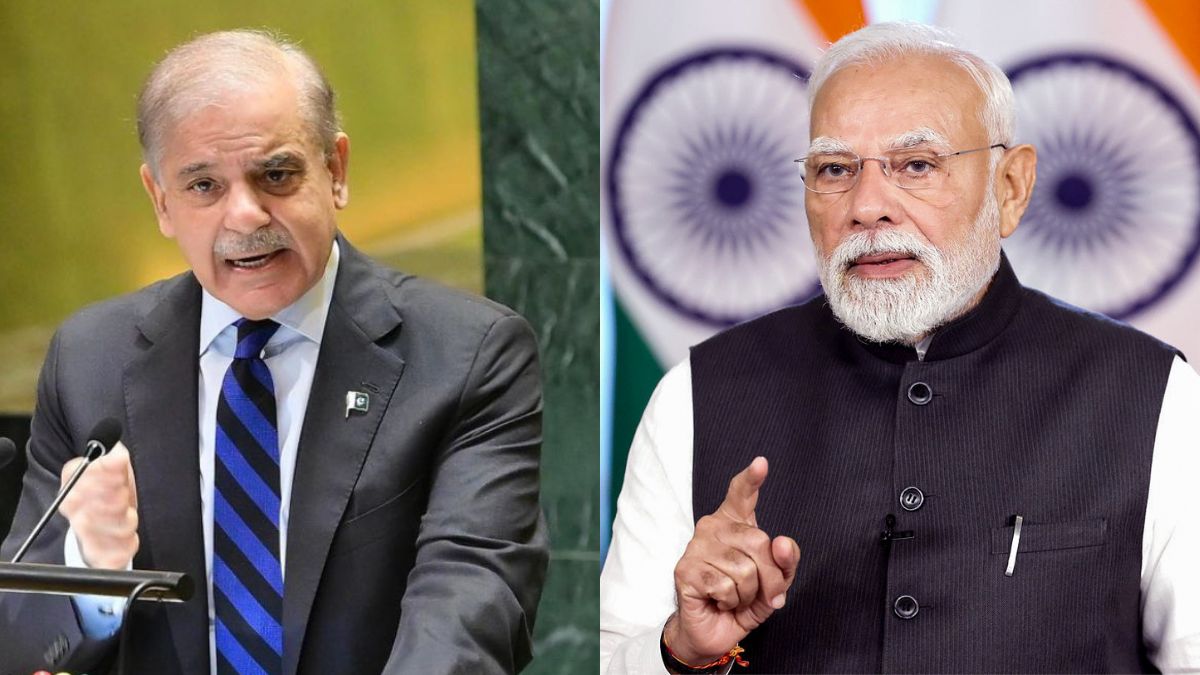- By Priyanka Koul
- Fri, 22 Aug 2025 11:41 PM (IST)
- Source:JND
Pakistan on Friday strongly criticised India’s recent test of the Agni missile, claiming that the move “undermines peace, security and strategic stability” at both the regional and global level. Foreign Office spokesperson Shafqat Ali Khan made these remarks during his weekly press briefing in Islamabad.
Responding to a question on India’s defence spending, Khan said New Delhi’s growing arms purchases after recent clashes with Pakistan reflect an “alarming trend”. He added, “We notice the arms accumulation or the procurement... It is dangerous not only for Pakistan's security but also for regional stability.”
Khan accused the international community of ignoring India’s “rush to develop the military capabilities”. Referring specifically to the Agni missile test, he said India’s pursuit of intercontinental ballistic missile (ICBM) capabilities shows “a growing military threat posed by India extending far beyond the region and even the continent.”
“This development seriously undermines peace, security and strategic stability at both regional and global levels," he alleged.
ALSO READ: Where Is Jagdeep Dhankhar?’ What Former VP Is Really Up To Amid Opposition’s Buzz; Know Here
"India's extending missile arsenal, including systems with intercontinental range, raises serious concerns about the selective and discriminatory application of Export Control Regulations that have enabled such destabilising advancements,” he added.
The spokesperson also said that Pakistan remains committed to maintaining full-spectrum deterrence for the safety and security of its people and to ensure peace in South Asia.
ALSO READ: Sniffer Dog Bites 4-Year-Old At Kolkata Airport, Family Cancels Malaysia Trip
On dialogue with India, Khan reiterated that Pakistan’s position remains unchanged. “India says that they would talk on terrorism only; however, we want to talk on all matters, including terrorism, not just on terrorism,” he said. India, on its part, has made clear it is only willing to hold discussions on the return of Pakistan-occupied Kashmir (PoK) and terrorism-related issues.
The Pakistan Foreign Office also called on New Delhi to “immediately resume the normal functioning” of the Indus Waters Treaty, which was suspended by India after the Pahalgam terror attack in April this year that killed 26 people.
India has made it clear that it will only have a dialogue with Pakistan on the return of Pakistan-occupied Kashmir and the issue of terrorism.
The composite dialogue was launched in 2003 when General Pervez Musharraf was ruling Pakistan. It had eight baskets of components, containing all contentious issues between the two countries.
The dialogue was derailed after the 2008 Mumbai attacks and not restored in proper form.
Khan also urged India to "immediately resume the normal functioning" of the Indus Waters Treaty.
Following the Pahalgam terrorist attack on April 22, India announced a raft of punitive measures against Pakistan, including suspension of the Indus Waters Treaty.
Replying to a question, Khan said there is no meeting planned between the prime ministers of Pakistan and India on the sidelines of the Shanghai Cooperation Organisation summit in Tianjin at the end of the month.
On the matter of India-Pakistan cricket matches, Khan remarked, “We continue to assert that sports and politics should not be mixed.”
He also acknowledged the role of US President Donald Trump in brokering a ceasefire in the region, saying, “It continues to make a very important contribution to the peace and stability of this region.”
